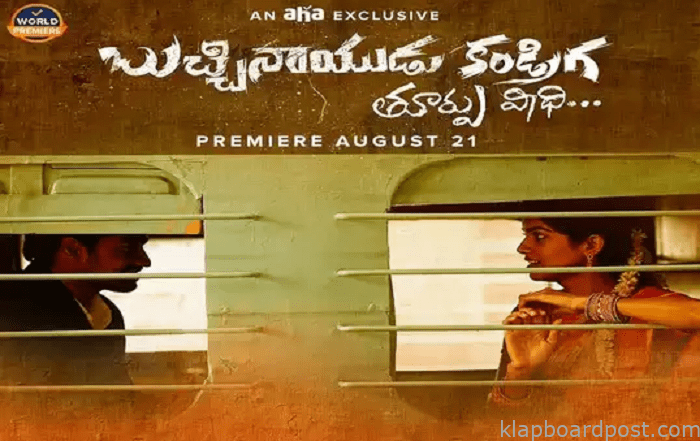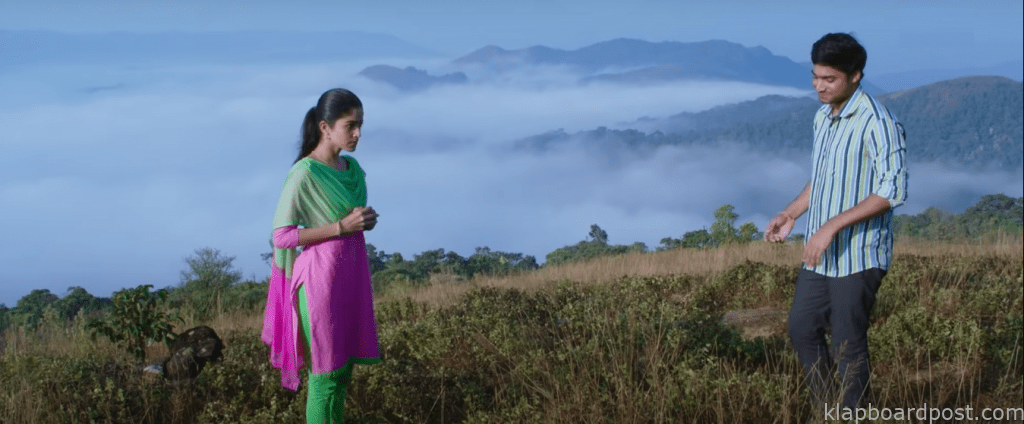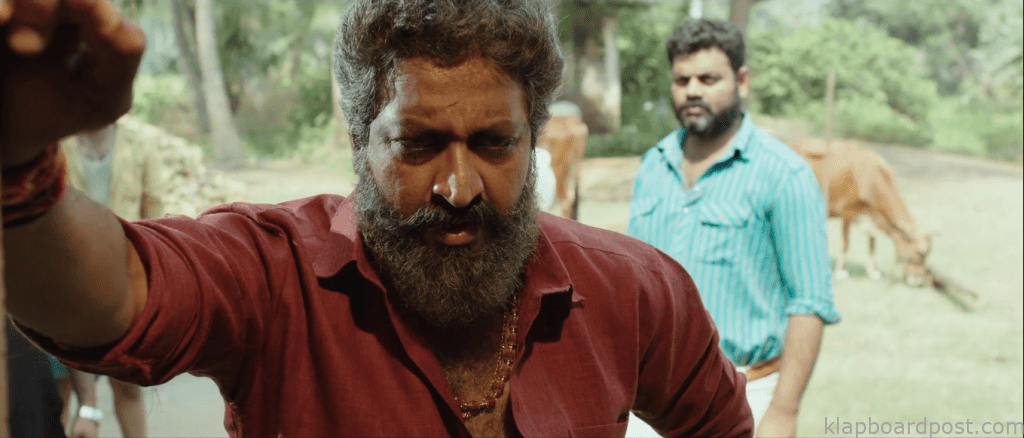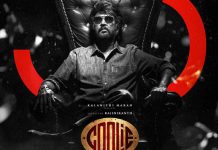Srivathsan Nadadhur
Bucchinadu Kandriga (Toorpu Veedhi) is an addition to a gamut of Telugu films that are attempting to address caste divide in the rural belt through a passionate romance. It’s a Romeo-Juliet like setting, and the filmmaker Poluru Krishna makes it very evident. The much-in-love couple is named after the popular lead characters in K Balachander’s 1979 romantic-tragedy Maro Charitra, Balu and Swapna. Both belong to different castes, Balu is a son of Narayana, a humble railway station employee while Swapna is the daughter of a casteist village headman Godlapaka Veeraswamy. These are two poles that are unlikely to meet. Or is there a harmony on the cards?
The director crafts Bucchinadu Kandriga as an ode to cinema from the very first frame. The film opens with a sequence where the protagonist in a rugged, bearded avatar sees life through the Pawan Kalyan-film Tholi Prema in a theatre. The key moments – happy, sad and the intense situations – in Bucchinadu Kandriga unfold in coherence with crucial sequences from the Pawan Kalyan starrer; they are fond nostalgic parallels that do a world of good to the storytelling. This is most impactful in a terrifically cut interval sequence where the protagonist is in danger – it’s the perfect example of a whistle-worthy moment cut for a theatrical experience.

The viewer gets a sense of the timeline in Bucchinadu Kandriga from the film posters on the street, the video cassettes of the films rented by the female protagonist. However, the film falters where it matters the most – the romance. Regardless of the many attempts the filmmaker makes to suggest that it’s a love with a timeless and classic quality, the relationship between Balu and Swapna is bereft of depth and lacks innocence too. While the film repeatedly portrays Balu’s interest in his childhood sweetheart, the sequences confirming Swapna’s reciprocation are quite silly. Here’s a film made in 2020 where a female character falls for a guy after he touches her waist accidentally!! (Was it to take a dig at the Telugu films that glorified such instances in the 90s? I’m not sure about giving a benefit of doubt)
The film picks up some momentum after the foundation for the romance is set. The later sequences aptly reflect the many instinctive decisions that the youngsters take to salvage their romance and pay a heavy price. However, the writing lacks enough maturity and precious screen time is wasted on trivial moments. The humour, but for a few instances, remains rather juvenile revolving around an overweight guy and his gastric issues.

Bucchinaidu Kandriga explores and sometimes glorifies caste divide, romance for a major part of the film (was the first-night sequence needed at all?), though the writer-director preserves the crux of the story for the final stretch (which is a roar). There’s great old-school drama but not enough screen time to justify the transformation in the protagonists (after many personal setbacks). The film’s major problem is that the makers are confused between being raw, brutal and pandering to the box office formula.
Excepting a cheeky climactic twist, the caste conflict feels generic and basic. The characters are either black or white. The Chittoor-slang is among the Bucchinadu Kandriga’s high points, but for a film named after a region, it deserved to have explored its backdrop in greater detail. The passable performances pull through some of its weaker moments. Munna, the lead actor, fits the bill for an innocent protagonist who transforms into a beast. He’s particularly good in the sequences while innocently glancing and smiling away at his romantic interest at school and his neighbourhood. Drishika Chander looks her part in a film in the shoes of a ‘padaharanala telugu ammayi’, though her characterisation lacks meat.

Bucchinaidu Kandriga unearths wonderful performances from its supporting cast, who’re undoubtedly the film’s pillars. Ravi Varma, though typecast in a heap of negative appearances, lends weight to the rough edges of his character and packs a good punch as the 90s-styled villain with an aura. However, Pavithra Jayaram is the surprise package of the film in the shoes of a mother of the female protagonist. She’s casual, witty and intense and shifts between all these shades in her role with relative ease. It’s time Telugu cinema gives this untapped actor her worth.
The film wouldn’t have been half as effective without the presence of C/O Kancharapalem actor Subba Rao as the protagonist’s father; he pulls off the nobleman act with conviction and the depth of a veteran. The actors playing the friends of the leads have rather unmemorable roles. The cinematographer Ram K Mahesan does a fine job in lending authenticity to the visuals, creating the 90s nostalgia and taking the story forward in a minimalistic-yet-effective fashion. Mihiraamsh’s music fits the needs of the film. Writer Poluru Krishna takes up a decent theme for his directorial debut, yet struggles to maintain the focus of the narrative and gives himself and the viewers very little time to digest the essence of the story.
(Bucchinaidu Kandriga streams on Aha from August 21)













